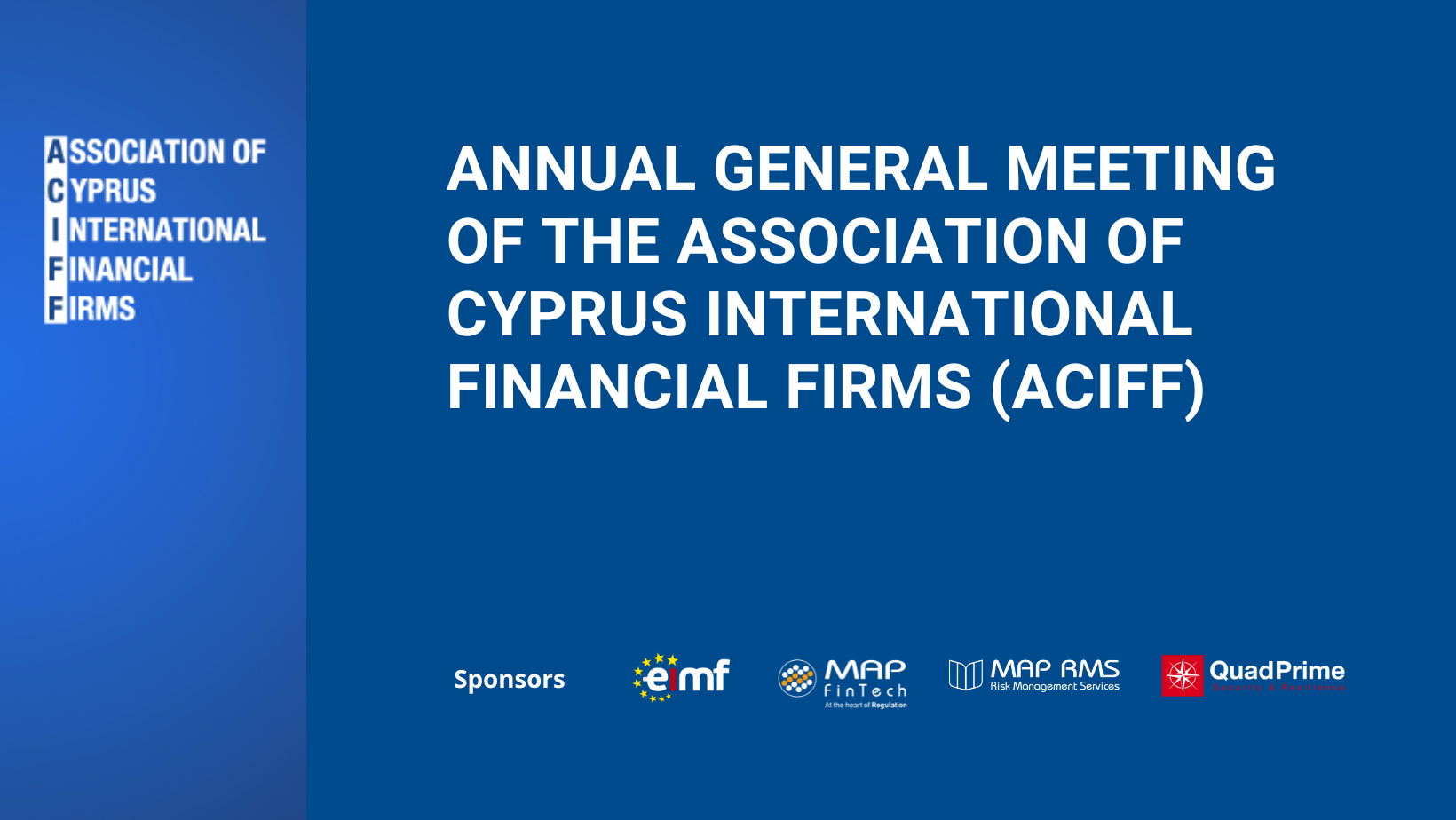The Association of Cyprus International Financial Firms (ACIFF) used its annual general meeting to focus on the evolving regulatory landscape, financial resilience, and anti-money laundering (AML) compliance.
According to an official announcement from the association, discussions centred on the impact of MiCA, DORA, and AMLA regulations and the strategies needed for Cypriot financial firms to adapt to the new supervisory environment.
Senior industry executives and regulatory representatives analysed the latest developments and challenges, outlining strategies for firms to navigate the shifting market conditions.
Keynote speakers included George Theocharides, Chairman of the Cyprus Securities and Exchange Commission (CySEC), and George Karatzias, Executive Board Member of the Central Bank of Cyprus (CBC).
ACIFF President and CEO of MAP S.Platis, Demetris Taxitaris, opened the event, stressing the sector’s need to adjust to the new regulatory framework.
Demetris Taxitaris highlighted ACIFF’s critical role in representing Cyprus’s financial firms.
As the largest industry association, ACIFF includes over 90 member companies and directly employs more than 4,000 professionals, with additional indirect employment in supporting services and sectors.
He stressed that “European and Cypriot financial markets are undergoing significant regulatory changes, requiring firms to comply and adjust accordingly”.
He further noted that “ACIFF is strengthening its position as a key representative body by closely collaborating with regulators, participating in consultations on new regulations, launching educational initiatives, and providing direct guidance to its members”.
Through these efforts, the association “aims to foster a sustainable, resilient, and competitive business environment”.
CySEC chairman George Theocharides outlined the commission’s primary regulatory changes and supervisory priorities for 2025.
There was particular focus on MiCA and DORA regulations. MiCA (Markets in Crypto-Assets) establishes a unified regulatory framework for crypto-assets, while DORA (Digital Operational Resilience Act) enhances financial institutions’ cybersecurity resilience.
He underscored CySEC’s increasing focus on cross-border supervision, utilising artificial intelligence systems to assess risks and strengthen market oversight.
George Karatzias, Executive Board Member of the CBC, detailed the significant changes introduced by the new European AML Package, including the establishment of the Anti-Money Laundering Authority (AMLA) as the EU’s central supervisory body.
The new framework expands compliance requirements to include cryptocurrency service providers (CASPs), real estate professionals, luxury goods traders, crowdfunding platforms, and football clubs.
It also enforces a Europe-wide cash transaction limit of €10,000 and imposes stricter transparency rules for company beneficial owners.
The updated AML regulations necessitate more rigorous transaction monitoring, increased investment in risk-detection technologies, and enhanced transparency in identifying corporate beneficiaries. Early compliance will be crucial for maintaining firms’ competitiveness.
Speakers agreed that the evolving regulatory landscape will shape the long-term future of the financial sector, requiring companies to adapt swiftly and effectively.
As compliance challenges intensify, ACIFF said that it is reinforcing its initiatives to prepare firms for the changes, ensuring the development of a sustainable, resilient, and innovative financial ecosystem in Cyprus.
The event was moderated by Mateo Jarrin Cuvi, Global Manager for Partners & Media at The Association of Governance, Risk & Compliance.
It was supported by the European Institute of Management and Finance (EIMF), MAP FinTech, MAP Risk Management Services, and QuadPrime.






Click here to change your cookie preferences